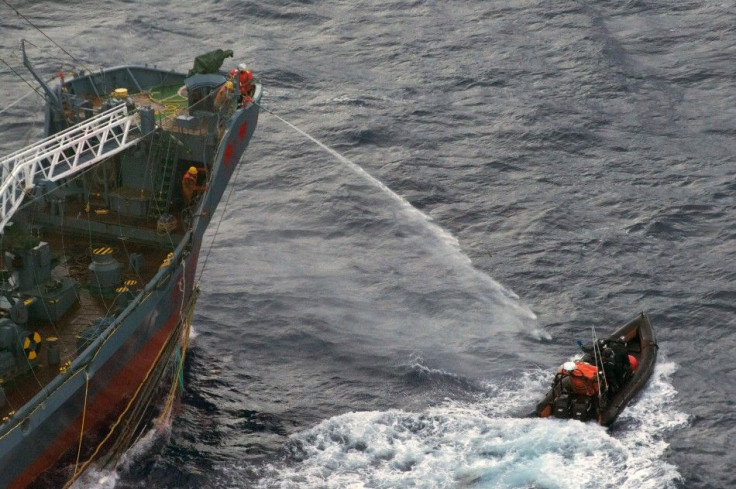Japanese Whaling Fleet Returns Home With Sharply Reduced Catch

Japanese whaling ships have returned on schedule from the Antarctic, but were forced to cut their hunting expedition early, short of expectations.
The Japanese Fishers Agency blamed activists and environmentalists for sabotaging their whaling enterprise.
The catch was smaller than planned due to factors including weather conditions and sabotage acts by activists, an agency official said.
There were definitely sabotage campaigns behind the figure.
Despite an increase in the fleet's security budget of about $30 million, the whaling ships returned to Japan with a catch of 267 animals, much lower than the maximum quota of about 900. They reportedly caught 266 minke whales and 1 fin whale.
A principal saboteur was the Sea Shepherd Conservation Society, an environmentalist group based in the United States.
Since whaling season began in December of last year, the Sea Shepherd followed the Japanese fleet into the Southern Ocean Whale Sanctuary on its eighth expedition to prevent the Japanese whale hunt.
Despite 12 confrontations -- including episodes where the Japanese sprayed the Sea Shepherd boats with water cannon and the activists hurling stink bombs and smoke bombs at the Japanese harpoon vessels -- the environmental group was able to save many sea animals.
The kill figures will not be released by Japan until April, but in my opinion they will not get over 50 percent for certain and my prediction is it will not be above 30 percent, said Paul Watson, captain of the Sea Shepherd.
Watson sees a clear victory in both the premature pullout of the Japanese whaling ships and the shortfall in the whale harvest.
It's been a very successful campaign for us. We chased them for three months, 17,000 miles. They really didn't have much time to catch whales in all that time, Watson told Agence France Presse.
Commercial whaling is illegal under an international treaty. However, the Japanese have claimed their right to whaling for scientific purposes since 1987.
The Japanese are expected to continue their whale hunts but the Sea Shepherd promises to be back on their trail with even more equipment next year: four ships, two helicopters, four UAV (drones), and 120 volunteers, according to their website.
It is only a matter of how much money the Japanese are willing to waste, Watson believes. Given the 2011 tsunami and earthquake reparations Japan must undertake, expensive whaling expeditions might not be as realistic in the future.
© Copyright IBTimes 2024. All rights reserved.





















